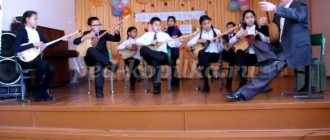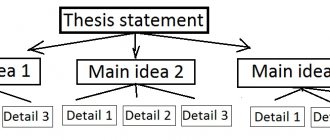Article: “Description of the work experience of an English teacher”
Article: “Description of the work experience of an English teacher”
Author of the article: Bekezhanova Madina Askatkyzy
A teacher who is wise with professional and life experience understands that knowledge lies in the future self-realization of students, their success, but at the same time they must remain true citizens of their country, loving their land, their small Motherland.
Increasing cognitive activity and interest of students in academic work is the goal of game forms of learning in foreign language lessons. I believe that the humanitarian function of developing foreign language education is expressed in creating conditions for the formation of spiritual and moral values of the individual.
But the principle of active tolerance suggests not only the teacher’s orientation towards the individual as a subject of the educational process, but also respect and acceptance of students’ opinions and points of view.
The main goal of teaching a foreign language is to develop personality through one’s subject, to interest the student and teach him to learn, to teach him to communicate through the cultural content of the country.
Communication can be carried out both orally and in writing. In the first case, a person must master two means of communication - speaking and listening as types of speech activity. In the second case, proficiency in writing and reading is required. Thus, speaking as a type of speech activity is only one of the means of communication.
This means: it is impossible to teach speaking without teaching communication, without creating conditions for verbal communication in the classroom.
In the context of new approaches to education and personal development by means of a foreign language, in addition to the well-known general didactic principles, new principles are highlighted, determined by the modern realities of foreign language education. Speaking about a student-centered approach to learning, it is justified by the principle of developing productive educational activities in the field of education. At the same time, the emphasis should be shifted from teaching activities to the activities of the student in learning the language.
The tasks that I set for myself:
— Creating a creative atmosphere
— Development of cognitive activity in foreign language lessons
— Enriching students with new knowledge, skills and abilities.
Successful results will be obtained if the largest number of students actively participate in the lesson. The children will gain knowledge or consolidate existing knowledge, develop and acquire speech skills, learn to solve problems in a group, and most importantly, they will develop motivation to learn.
On the one hand, a game is entertainment, an arbitrary activity that is done for the sake of interest. On the other hand, a game is one of the ways to transfer knowledge: in this case, it is a form of learning. Using the game as a way to enrich students with new knowledge, skills and abilities, we fill it with didactic content, and the entertainment game turns into a didactic game that is used for learning purposes.
The reasons for using didactic games are due to:
— a communicative approach to learning a foreign language
- interests of schoolchildren
- the need for students to play
Each game activity carried out in the lesson must meet certain didactic and methodological principles. These include:
— principle of accessibility
- principle of novelty
— the principle of gradual increase in complexity
— the principle of taking into account individual and age characteristics
— the principle of connecting gaming activities with other forms of work in the lesson
The technology of teaching grammatical and lexical means is based on the provisions of communicative orientation and conscious language proficiency. The correct implementation of these provisions ensures the effectiveness of communication activities organized in the lesson and determines the student’s interest in it.
The main function of the provision on communicative orientation is to create all the conditions for communication: children study lexical phenomena in the learning process, in play activities. The game allows you to organize teaching grammar as an exciting process of solving communicative problems that realize the game motives and goals of each speech and non-speech action. Extracurricular work in English is organically included in the educational process. The forms can be very different: competitions, olympiads, evenings,
holidays. For elementary and middle school students, it is best to spend holidays with simple dramatizations of fairy tales, songs, and games in the KVN style. Conducting extracurricular activities increases interest in learning a foreign language, developing speaking skills, repeating and consolidating learned vocabulary, and expanding vocabulary. When students act in a play, perform songs, recite poems, participate in competitions and games, all this gives them great aesthetic pleasure and helps deepen their language knowledge, creates participation and the motivation without which there is no learning a foreign language.
The English lesson has its own specifics: the formation of the student’s communicative competence is put forward. Today, more and more attention is paid to man as an individual - his consciousness, spirituality, and culture. There should be a constant search at school, the goal of which is to find new forms and methods of teaching. I consider it necessary and will lie:
- Lesson-game;
- Lesson-excursion;
- Lesson-presentation;
- Lesson - travel;
- Lesson-lecture;
I think that these forms of education stimulate students' interest in learning foreign languages. language, promotes the development of cognitive and communicative interest, promotes a deeper and more conscious perception of new material.
- Particular attention to the control of speech skills is due to the following considerations.
Firstly, it is communication skills that are the main indicator of a student’s learning.
Secondly, control of language skills still predominates in practice. The control of speech skills, especially the final one for the entire course of study, as suggested by the temporary state educational standard, is new in a certain form.




